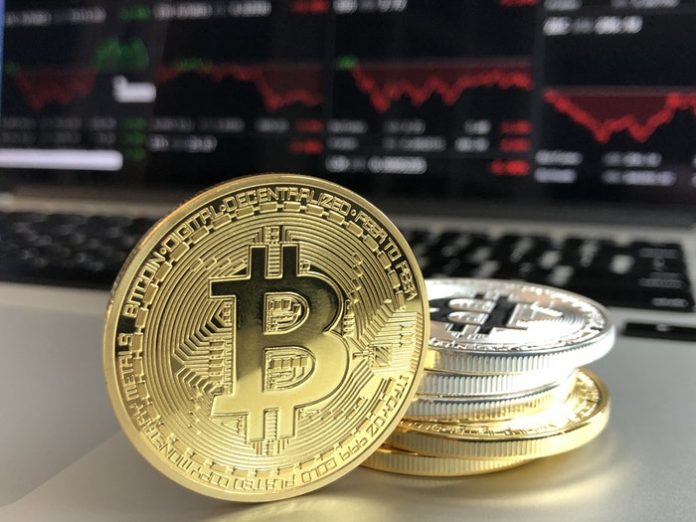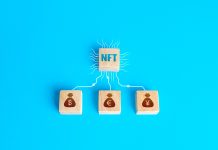Cryptocurrencies are the future and the future is now.
– Mark Zuckerberg
So, you’ve started a business and it’s thriving. One of the central tenets of business is that change will happen, and if we are to survive as entrepreneurs and business owners we will have to change as well.
Cryptocurrency and blockchain are two of those big changes. Truthfully, nobody knows exactly where cryptocurrency and blockchain will be in the next 10 years, the next 5 years, or even next year; but if you look hard enough there is some very definite evidence developing.
Cryptocurrencies are now fundamentally changing how we conduct commerce and handle transactions. In the same way that we transformed from gold and silver to reserve notes, and then to plastic and now to digital currency (balanced by a return to gold for many investors!).
And, this change is not a ‘someday’ thing. It’s here. Walmart, for instance, announced that it is going to require some of its suppliers to use blockchain technology to track products all the way from the farm to the store. This move makes a lot of sense. Blockchain is basically a shared public ledger without any central authority. Companies can “see” on the blockchain where the product originates and how it passes down the supply chain and into the hands, ultimately, of consumers. No more complexities of a mostly disconnected group of different companies trying to work together to keep accurate records on multiple systems and coordinate information across the globe. No more silos of information that are difficult to track. The blockchain becomes one big, massive and secure collaboration of all the pieces of the supply chain. Food safety, for one, will be exponentially better with the advent of blockchain.
Like most new ideas and innovations there is a lot of information and misinformation about cryptocurrencies and blockchain.
Here are just a few with some facts to help dispel the myth:
Cryptocurrencies are unregulated.
In fact, cryptocurrencies are being regulated both at the state and federal level. The SEC, CFTC, IRS and FinCEN are all making sure that there is clarity and enforcement of rules and regulations of ICOs, coins, and tokens, as are state regulatory bodies.
Bitcoin will get shut down.
In order to “shut down” any cryptocurrency that is legitimate and being used as a store of value on the blockchain, the Internet would need to be shut down by a government. Because they are decentralized, cryptos can never really be shut down. However, there are some countries that are banning the use of cryptocurrencies.
Only criminals and shady people use cryptocurrency.
Money laundering has been around for centuries, and it is just not the case that criminals are using cryptocurrency any more than other currencies. Most exchanges are regulated and are able to identify the people buying the cryptocurrencies offered on the specific exchanges. The KYC (Know Your Customer) rules require proof of identity and other information before any person can conduct business on the exchanges. While criminals might try to take something valid and useful, like crypto, and use it for their own purposes, the dominant use of crypto, just like dollars, is legitimate.
The Blockchain is free.
The blockchain technology, like most technologies, is not free. It is actually rather expensive and since it’s still in its early stages, not very efficient. It takes a lot of computing power to run the multiple servers that are solving algorithms and establishing immutable “blocks” of data that create the blockchain. And, whenever a transaction is done on the blockchain, the user must pay for “gas” that is called ‘ether’ to accomplish the transaction.
Crypto transactions are anonymous.
Most exchanges require personal information before trading cryptocurrencies being offered on that particular exchange. In the early stages, bitcoin transactions were anonymous, however, today you can track most blockchain transactions easily.
Cryptocurrency is a Ponzi scheme.
Many people think cryptocurrencies are a way to con investors out of money. That is not the case. A few ICO (Initial Coin Offering) scams have garnered a lot of media attention. However, this new economy and its way of conducting business peer-to-peer are transforming industries around the globe. It’s important to research the coins and tokens before investing money in them, just like you would a stock or other investment.
Now What?
So, what can you do to prepare for an inevitable and seismic shift in how we handle sales and supply chains? If you don’t want to get left behind, take some time to read up on this new world of finance to arm yourself with knowledge and the right tools. Seek out experts and ask as many questions as possible to determine the truth and its potential impact on the business. Hopefully, Walmart’s suppliers are prepared and ready to integrate blockchain into their businesses, because it’s happening.
The bottom line: The future of finance is upon us. Knowledge really is power, especially when it comes to our businesses and how we best run them, to, in the end, serve our customers and win.
Scott and Jill Carter are entrepreneurs and the authors of the recently published book, You Got This! To learn more, go to yougotthisnow.com.
Find a Home-Based Business to Start-Up >>> Hundreds of Business Listings.

















































